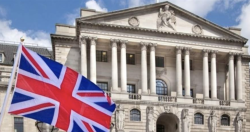Egypt: Inflation rates increase again reaching 12.2 per cent
- 2019-02-12 09:01:43


 Pierre Rayer: Art, Science, and Happiness: The Universal Mission of Transmission to Future Generations through Patronage at the Louvre Abu Dhabi
Pierre Rayer: Art, Science, and Happiness: The Universal Mission of Transmission to Future Generations through Patronage at the Louvre Abu Dhabi Ahly crowned Super champions after dramatic extra-time win over Modern Future FC
Ahly crowned Super champions after dramatic extra-time win over Modern Future FC Yemeni Honey..A Development Wealth Threatened By Conflict And Climate Change
Yemeni Honey..A Development Wealth Threatened By Conflict And Climate Change California wildfires: Millions warned of possible power cut
California wildfires: Millions warned of possible power cut Central African rebels launch attacks near capital
Central African rebels launch attacks near capital Australia: 11 killed in shooting at Sydney's Bondi Beach
Australia: 11 killed in shooting at Sydney's Bondi Beach Two dead, several injured in mass shooting at Brown University in US
Two dead, several injured in mass shooting at Brown University in US UK economy unexpectedly shrunk before Budget
UK economy unexpectedly shrunk before Budget Syrian Interior Ministry Clarifies Identity of Attacker in Joint Patrol Incident Near Palmyra
Syrian Interior Ministry Clarifies Identity of Attacker in Joint Patrol Incident Near Palmyra Yemen’s Houthis Court Continues Trial of Former U.S. Embassy Staff
Yemen’s Houthis Court Continues Trial of Former U.S. Embassy Staff
